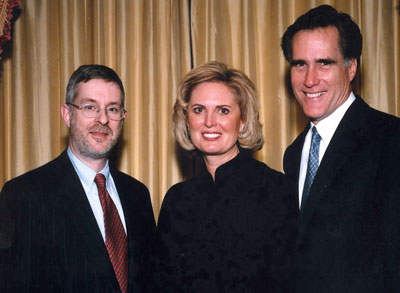Curhan Law Office
Taking clients to the next level
Hiring an Appellate Lawyer
Below are ten questions that you should ask and to which you should receive satisfactory answers before hiring an appellate lawyer.
1. Who will write the brief?
Many attorneys hire law students or attorneys right out of law school to research and/or write their appellate briefs. No matter how bright they may be, law students and new lawyers do not have the necessary experience to correctly identify the substantive legal issues, nor do they understand the procedural rules unique to appellate practice.
As a practical matter, you have one shot to present your case to the appellate court. The brief should be researched and written by an experienced appellate attorney, and not by a student or a new lawyer who has never practiced before an appellate court.
2. Who will argue the case?
Ideally, the attorney who researches the issues and writes the brief should argue the case. That attorney will be the most familiar with the record in the case and the law behind the issues.
The common practice of having a junior attorney or law student writing the brief and a senior attorney arguing the case does not work particularly well in appellate courts. There will be 3 to 7 justices questioning the attorney about the law and facts of the case. Unless the attorney arguing the case is intimately familiar with the record, the argument will go very badly.
3. How many appeals has the lawyer handled?
Appellate practice is not something you can get the hang of after a couple of tries. The more experience, the better. 50 is a good starting point. Anything over 100 is preferable, especially for a more serious appeal.
4. What percentage of the attorney’s practice is devoted to appellate work?
It is difficult to mix a trial and appellate practice. A lawyer who is constantly on trial simply will not have the large blocks of time necessary to write an effective appellate brief, much less to do so within the tight deadlines imposed by the courts.
Further, the fact that an attorney is an outstanding trial lawyer has no bearing on whether he or she can handle an appeal. Different skills are involved.
5. Has the attorney ever handled a case similar to yours?
Similar cases often involve similar issues. It is important for an attorney to be familiar with the types of issues that tend to arise in a case like yours so that he or she can identify and address those issues.
6. Has the attorney ever overturned a criminal or civil judgment?
The overall percentage of wins versus losses is meaningless. No matter how good an attorney is, he or she will lose most appeals that challenge judgments, particularly criminal cases.
However, an experienced appellate attorney will have won some appeals. The fact that an appellate attorney has never won an appeal may indicate that he or she is not identifying the correct issues or is not connecting with the court in some way.
7. Has the attorney ever won a case like yours?
There is a first time for everything, and perhaps your case will be the first case of its type that your lawyer will win. However, one or more wins in a case like yours may indicate that the lawyer understands the types of issues that your case would raise.
8. Will the attorney provide you with a list of the published decisions he or she has handled?
Although most decisions are unpublished, anyone who has done a significant number of appeals will have a fair number of published decisions. The attorney should be willing to provide a list of these cases.
9. Has the attorney published any articles in law related journals or publications?
Published articles are a good indicator of outstanding research and writing skills. They can also give you some idea of the attorney's style.
10. Can the lawyer complete the brief within the deadline set by the court, or does he or she expect to receive extensions?
Once the transcript is ready, the lawyer should be ready. If a lawyer needs multiple extensions in order to file your brief, you will be waiting a long time for your appeal to be heard. If it takes 6 months for your lawyer to file a brief, opposing counsel will certainly ask for extensions to file theirs. Failure to meet deadlines may also indicate that the lawyer has priorities other than your case.
Reminder
One caveat: beware of guarantees or promises. As tempting as it may be, you should not hire any lawyer who guarantees that he or she will win your case. The ethical rules prohibit lawyers from promising a particular result, and for good reason. No lawyer can guarantee a successful outcome on appeal.

___________________________________
© 2018 Curhan Law Office. 45 Bowdoin Street Boston, MA 02114 | Tel: 617-267-3800 | Fax: 617-247-3800 | E-Mail: dana.curhan@gmail.com
Disclaimer
The Curhan Law Office Web site provides information about the firm and certain topics that we feel users of the Web site may find of interest. The content provided on the Curhan Law Office Web site is for informational purposes only. This information may be considered advertising under the rules of professional conduct applicable to our legal practice.
Further, your use of the Curhan Law Office Web site is not an invitation to enter into and does not create an attorney-client relationship. Please do not convey to us any information you regard as confidential unless and until a formal lawyer-client relationship has been established. Any information we receive from you prior to the formal establishment of such a relationship will not be confidential.